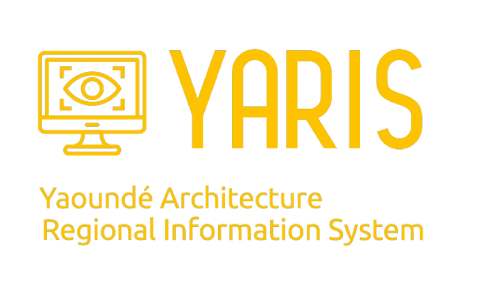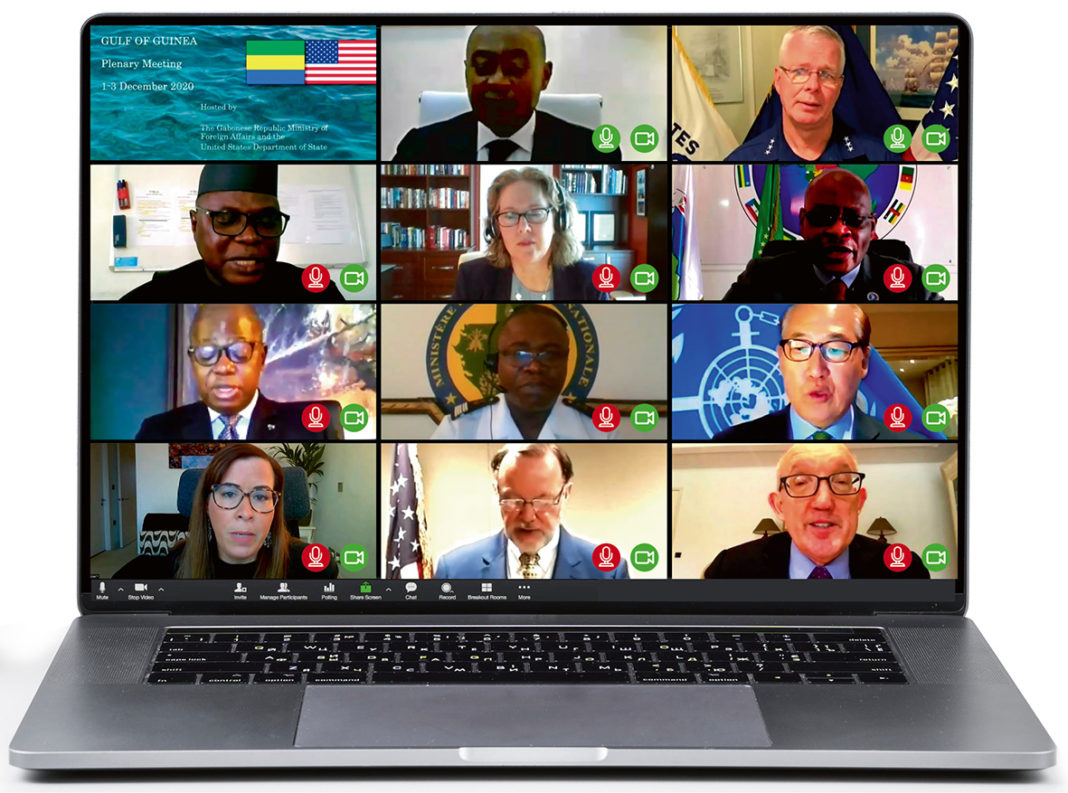The G7 Group of Friends of the Gulf of Guinea (G7++ FoGG) plenary session took place virtually from December 1 to 3, 2020, under the co-presidency of Gabon and the USA (online video). It brought together more than 80 participants from the Gulf of Guinea including countries and external partners, and allowed to take stock of maritime security and the ongoing initiatives to combat the various illegal activities at sea in this region. The effective implementation of the Yaoundé Code of Conduct, adopted in 2013, was at the core of the discussions.
The European GoGIN project is one of the initiatives led by the European Union to strengthen the Yaoundé Architecture’s maritime centres, as defined by the Code of Conduct. During his presentation, Jean-Philippe Picquart, Strategic Advisor to GoGIN, underlined the crucial role of information sharing between administrations, countries and partners to anticipate and combat incidents and criminal acts at sea; the YARIS platform developed by the project in collaboration with the partner centres is a concrete response to this sharing necessity. The GoGIN training team also actively participated in Working Groups 3 (MDA) and 4 (Training, Practice and Exercises), whose work was reported on December 3rd.
During these three days, each participant was able to learn about the joint efforts made by the regional countries and the external partners to monitor the maritime domain, anticipate and combat criminal acts, within the framework of the Yaoundé architecture. The discussions were co-moderated in a very dynamic way by Captain Jennifer Ketchum of the US State Department and Captain Loïc Moudouma of the Gabonese Navy.
On the first day, high-level officials (Gabon, USA, ECOWAS, ECCAS) recalled the political framework and the commitments made by the regional countries and the regional bodies; IMO Secretary General Kitack Lim highlighted the urgency of the security situation in the Gulf of Guinea and the need of cooperation.
The second day was devoted to initiatives led by the regional countries (NIMASA for Nigeria, ICC for the Architecture of Yaoundé), external countries and international organisations (European Union, UNODC, US Africom, Denmark, Portugal, Sea Shepherd).
During the third day, the 5 working groups reported on the discussions and exchanges that had taken place in the previous months; in addition to the above organisations, participants also came from the private sector (BIMCO) and other partner countries (Canada, Japan, Norway). They agreed that a forum like the G7 ++ is very useful to follow the numerous initiatives but that a stronger coordination was expected by all, to achieve convincing results.
The end of the meeting was marked by a symbolic handover to the United Kingdom and Senegal, who will be the G7 ++ co-secretaries in 2021.
Access the three-day agenda and the video of the full 3-days session.

